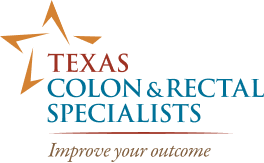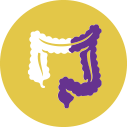Offering Individualized Care And Treatment
Texas Colon & Rectal Specialists work closely with you to create an individualized treatment plan based on the type and severity of symptoms. Treatment options may include dietary changes, medications, and in some cases, surgical intervention.
Laparoscopic Small Bowel Surgery
Small bowel resection surgically removes a diseased section of the small intestine. The laparoscopic technique involves small incisions and quicker recovery. In this procedure, the diseased section of the small intestine is stapled and removed, then the two bowel ends are reattached using staples.
Laparoscopic J-Pouch Surgery
This procedure often "cures" patients with ulcerative colitis and eliminates the risk of colorectal cancer. The J-pouch removes the colon and rectum, replacing the rectum with a neorectum (or new rectum), a pouch made from the last portion of the small intestine and connected to the anus.
Laparoscopic Restorative Proctocolectomy
Restorative proctocolectomy is standard treatment for advanced irritable bowel disease (IBD). Texas Colon & Rectal Specialists perform this technique via a laparoscopic, or minimally invasive approach, limiting recovery and down time for the patient.
Crohn’s Disease Versus Ulcerative Colitis
Crohn’s disease and ulcerative colitis exhibit similar symptoms and are often mistaken for one another, as both involve chronic inflammation in the lining of the digestive tract. Crohn’s disease spreads deep into the layers of affected tissues while ulcerative colitis frequently affects the innermost lining of the colon and rectum.





